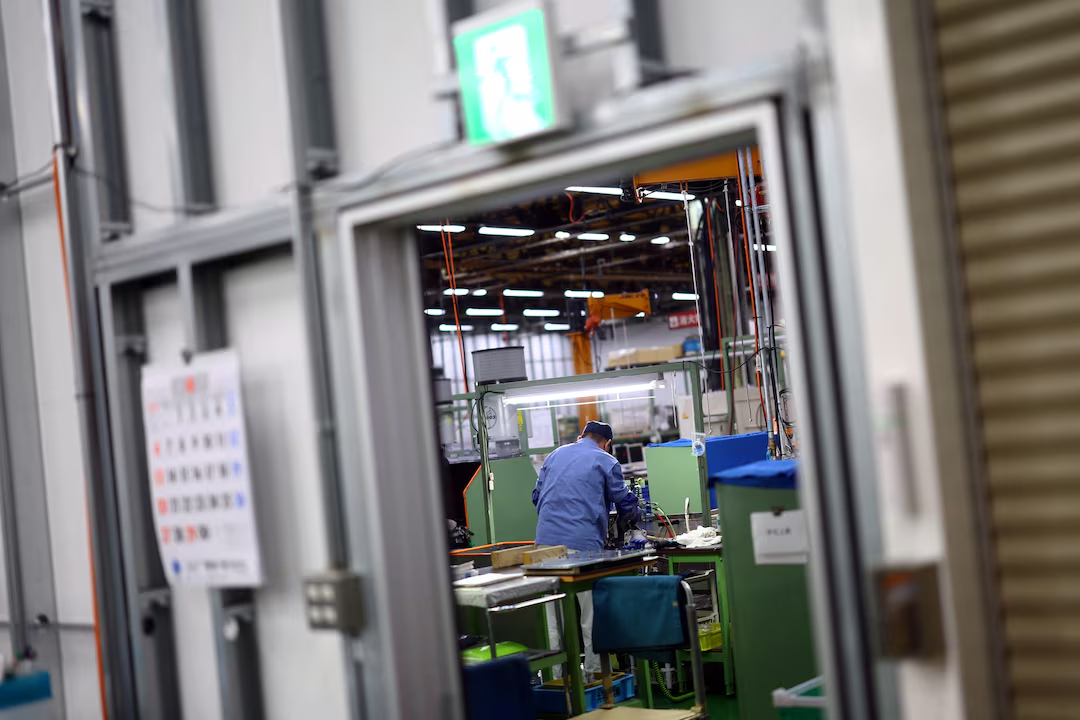The specter of tariffs, particularly those imposed by the Trump administration, looms large over Japan's vital automotive sector. Prime Minister Shigeru Ishiba has starkly labeled the U.S. tariffs, including a 25% levy on automobiles, a “national crisis.” While the headlines often focus on major carmakers like Toyota, Nissan, and Ford, the real story of the “tariff crossfire” is playing out in the intricate network of their suppliers. Three specific companies, Kyowa Industrial, Denso, and Toa Kogyo, offer a stark, first-hand account of the immense pressure and uncertainty gripping Japan's auto supply chain.
Kyowa Industrial: Diversification Derailed by Sweeping Tariffs
Hiroko Suzuki, the third-generation president of Kyowa Industrial, feels the current tariff landscape is disturbingly similar to a trade battle her father had four decades ago, but on a much larger scale. Her father negotiated a U.S. trade war four decades ago by pivoting the family automotive parts business, established 78 years ago, toward specialty niche products. Suzuki, now 65, had anticipated that with the industry's shift toward electric vehicles (EVs), engine components would eventually cease to be a part of the landscape; this led to her diversifying into medical device manufacturing in 2016.
Kyowa began selling neurosurgery instruments in the U.S. last year, only to find out with dismay that Trump's tariffs would equally apply to medical device. While Kyowa doesn't export auto parts to the U.S., Suzuki's worry is understandable. She is concerned that eventually, all automakers will have the same challenges and start to put pressure on suppliers to reduce costs to recover the tariffs they are responsible for paying. Kyowa's sales are only around 2 billion yen ($14 million, USD) annually. Kyowa is definitely larger than three-quarters of the almost 68,000 in Japan's auto-supply chain, but it still substantially relies on auto makers together for around 70% of its business. The company is now considering seriously moving production to the U.S. even with the significant higher costs or simply focus its sales in Asia altogether and discuss with possible distributors in Singapore and Hong Kong.
Denso: Uncertainty Clouds a Major Supplier's Outlook
The ripple effect of the tariffs extends to even the largest Tier 1 suppliers within Japan's intricate auto network. Denso, a prominent supplier to Toyota, has notably refrained from providing earnings forecasts for the coming year. This unusual silence in their financial outlook directly stems from the profound uncertainty introduced by the tariffs. Such a lack of clear guidance from a key player underscores the deep anxiety pervading the upper echelons of the supply chain, reflecting how unpredictable tariff policies can directly impact revenue projections and investor confidence.
Toa Kogyo: The Shared Burden of Tariff Costs
Shinichi Iizuka, president of Toa Kogyo, a suspension maker located in Ota, near Subaru's hometown, offers another perspective on the tariff fallout: the inevitable sharing of the burden. With around 70% of Subaru's car sales in the U.S., where it relies on both local manufacturing and imports, the tariff impact is substantial. Iizuka articulated a view shared by many in the industry, suggesting that the costs imposed by these tariffs will ultimately be distributed among various stakeholders: consumers, car dealers, automakers themselves, and, crucially, the suppliers like Toa Kogyo. This implies that while automakers may attempt to mitigate the direct hit, the financial squeeze will cascade down the entire value chain, ultimately reaching smaller manufacturers and potentially leading to higher vehicle prices for consumers.
The Broader Squeeze on Japan's Auto Supply Chain
What took place at Kyowa Industrial, Denso, and Toa Kogyo echoes a bigger issue facing Japan’s auto industry, according to Julie Boote of Pelham Smithers Associates. Actually, Toyota, Nissan, and Ford have penned letters to their Japanese subsidiaries in the U.S., hoping they will join in efforts to reduce tariff impacts, though not stating how much they would help. Nissan pointed out it was not forced by law to cover the tariffs, but it would help by shouldering some for a brief period to protect its supply chain, with the intention of being reimbursed.
Because of the pressure from tariffs, Japan’s decades-old move to non-car electronics, and the rise of electrical and battery-powered cars worldwide, market dominance now relies more on effective software than on hardware. Even government officials are urging small firms to bring about innovation and join together, which could help them get stronger during times of economic shock. Both the big-picture uncertainty around diversifying, predicting earnings, and splitting bill costs, plus the ongoing disruptive changes, threaten the industry, proving a big challenge for Japan’s economy.














